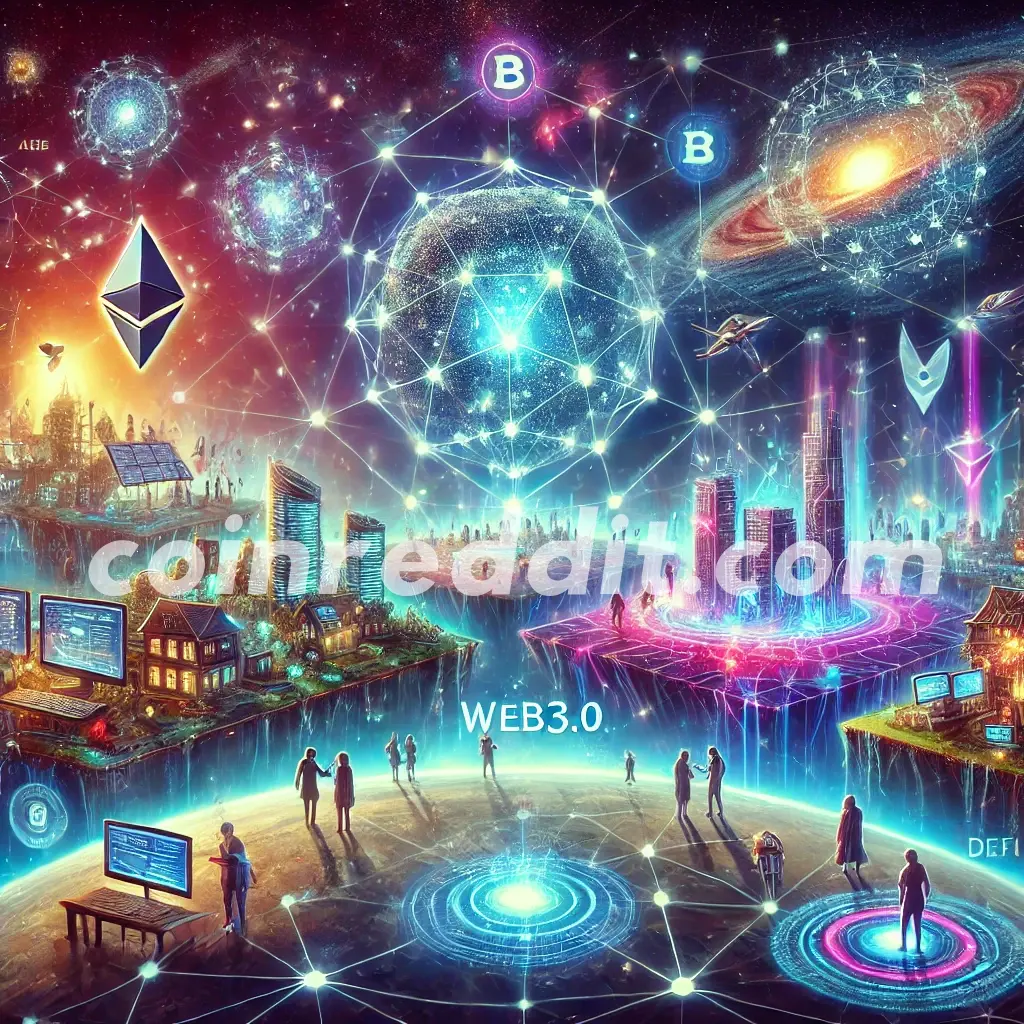
Future of Web3.0

The internet has undergone significant transformations since its inception, evolving from Web1.0, a static information-sharing platform, to Web2.0, an interactive and user-generated content era dominated by centralized platforms. Now, we stand on the brink of another monumental shift—Web3.0, a decentralized internet powered by blockchain, smart contracts, and self-sovereign identities. This new phase of the internet promises to redefine how we interact, own digital assets, and control our data. But what does the future of Web3.0 hold? How will it shape industries, economies, and the very fabric of our online existence? One of the most groundbreaking aspects of Web3.0 is its decentralized architecture. Unlike Web2.0, where tech giants like Google, Facebook, and Amazon control data and online interactions, Web3.0 distributes power across a network of users. As blockchain technology matures, we can expect an internet where users have full sovereignty over their online identity, data, and assets, eliminating reliance on third-party services. Web3.0 is closely tied to the metaverse, a digital universe where virtual reality (VR), augmented reality (AR), and blockchain technologies merge. This shift will give birth to entirely new economies driven by: As more companies integrate Web3.0 technologies, digital economies will become an integral part of global trade and finance. The next phase of Web3.0 will likely involve AI-powered decentralized applications (dApps). The combination of AI and blockchain will enhance automation, security, and efficiency in various sectors: This integration will lead to an intelligent and trustless internet, where interactions are seamless, automated, and resistant to censorship. Decentralized Finance (DeFi) has already demonstrated the potential of Web3.0 in revolutionizing traditional financial systems. However, DeFi 2.0 will take things even further: As traditional financial institutions adopt blockchain technology, Web3.0 could lead to a global financial system that is more inclusive, transparent, and resistant to manipulation. Despite its revolutionary potential, Web3.0 faces several challenges before achieving mass adoption: To overcome these hurdles, developers, policymakers, and industry leaders must work together to create an ecosystem that balances innovation, security, and compliance., Web3.0 is not just a technological upgrade—it represents a paradigm shift in how we interact, transact, and build online communities. With decentralization, AI integration, and metaverse economies shaping the future, the next decade will witness the rise of a truly user-owned and trustless internet. However, widespread adoption will depend on scalability improvements, regulatory clarity, and enhanced user experiences. If these challenges are addressed, Web3.0 has the potential to democratize digital spaces, empower users, and reshape the internet as we know it. The question is no longer if Web3.0 will take over, but when and how it will become the dominant framework for the digital world. ?
Decentralization Will Redefine Digital Ownership
The Rise of the Metaverse and Digital Economies
Artificial Intelligence (AI) and Blockchain Synergy
Web3.0 and the Future of Finance (DeFi 2.0)
Mass Adoption and Regulatory Challenges









Comments